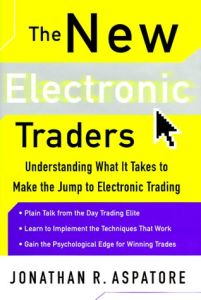
The New Electronic Traders
Understanding What It Takes to Make the Jump to Electronic
Recommendation
As Jonathan R. Aspatore is quick to point out, the traders referred to in the title of his book are not the millions of people trading stocks online through Schwab and E*Trade. Instead, they are a more sophisticated bunch with arsenals of DSL lines and Nasdaq Level 2 screens. Does that mean they are more successful than their counterparts on the World Wide Web? Aspatore says they are. He offers more than a dozen question-and-answer sessions with upbeat electronic traders who are jazzed by their own success. Not answered is this: If electronic traders have a competitive advantage over online traders due to better technology and information, what kind of an advantage do Wall Street trading houses have over individual electronic traders? getAbstract recommends this book to prospective day traders as a source for plenty of useful trading insights, but with this advice: Seek a cautionary note somewhere else.
Summary
About the Author
Jonathan R. Aspatore started EPS Business Partners, which helps companies analyze and execute new ventures, in 1997. He also worked as an investment banker in the technology sector. Aspatore has written books about entrepreneurship and other topics.










Comment on this summary